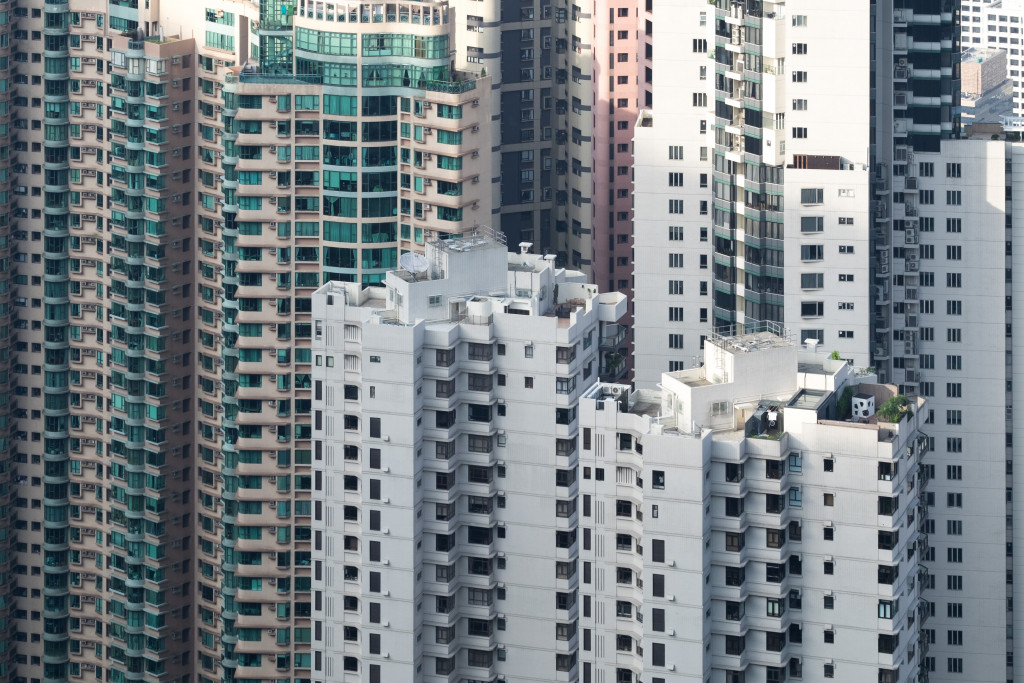It’s hard to find silver linings in the Chinese Communist Party’s virtual takeover of Hong Kong affairs, but there does appear to be at least one: Has anyone noticed how little the city’s tycoon class has to say these days?
Formerly regarded as kingmakers on the Election Committee, their influence was dramatically reduced to that of pipsqueak in last Sunday’s first poll under the radically transformed voting system imposed on Hong Kong by central government authorities. And, if you believe recent media reports, Chinese officials are also cracking the whip in closed-door meetings with the city’s big property developers, demanding that they do more — a lot more — to solve the ongoing housing crunch.

Here appears to be the calculation — miscalculation? — by the powers that be in Beijing: If Hong Kong can solve its housing crisis — which cannot be done without the active cooperation of the likes of Li Ka-shing’s CK Asset, Lee Shau-kee’s Henderson Land, the Kwok brothers’ Sun Hung Kai and the Cheng family’s New World Development — then all of its past troublesome aspirations for greater freedom and democracy will wither away into nothingness.
A Hongkonger who proudly owns his or her own home or enjoys the benefit of cheap, government-subsidised public housing won’t give a fig about the authoritarian political system that has swallowed a city once crackling with lively debate and protest — or so the reasoning goes. Indeed, Chinese authorities are reported to believe that Hong Kong’s tycoons are to a significant degree responsible for the raucous anti-government protests that shook the city of 7.5 million people for several months of 2019 and early 2020 before Covid-19 shut everything down.
The largely youthful protesters may have been shouting slogans advocating democracy and condemning the Hong Kong and central governments. But officials maintain that the underlying issue — the elephant in the city, if you will — has always been the unbridled greed of developers who have worked with local officials to keep land supply low and property prices sky-high, maximising their profits.
The result: just over just over 50 per cent of Hong Kong’s people own their own home, while those seeking public housing must endure an average wait of nearly six years before they are granted a flat. Cage homes, shoe-box and fire-trap subdivided flats abound in a wealthy first-world city that is loath to admit that more than 20 per cent of its population lives in poverty.

All this, of course, is a huge source of frustration, disillusionment and, yes, anger, especially for a younger generation that sees a future of dwindling prospects and opportunities.
Successive post-handover Hong Kong governments have failed miserably in their efforts to address the city’s housing woes and now, under the strict new regimen of obedience ushered in by the draconian national security law and the opposition-less electoral “reforms” that have been forced on the city, Chinese officials see an opportunity to slay this dragon.
According to a recent Reuters article citing as sources three anonymous Hong Kong property developers and a Hong Kong government adviser seemingly privy to behind-the-scenes talks between developers and Chinese officials, Hong Kong tycoons have been told, like everyone else in the city, to swallow a patriot pill and take one for the team.
In response to the Reuters report, Sun Hung Kai released a statement saying it was unaware of any such meetings, and the Real Estate Developers Association of Hong Kong issued a similar statement. The association’s executive committee, which comprises executives from 17 Hong Kong developers, was due to meet on Friday to discuss the matter.
Meanwhile, Shih Wing-ching, founder of one of the city’s largest real estate agencies, Centaline Property Agency, said reports that Beijing has decided to clamp down on developers are being “overplayed.”

When Chief Executive Carrie Lam Cheng Yuet-ngor was asked about the Reuters report on Tuesday, she refused to comment on what she characterised as “rumours” but also offered a rare compliment to property developers for being “more willing to cooperate with government policies” as of late.
Lam’s half-dodge notwithstanding, there is no reason to doubt the Reuters story. In fact, it’s a perfect fit in today’s Hong Kong, in which the power and influence of the city’s tycoons —including Li, the 93-year-old former “Superman” of the city’s business elite — are greatly diminished now that Beijing has taken full control of the city.
And, of course, Hong Kong will be a much happier place if central government authorities can twist the arms of developers hard enough to prompt them to cough up heaps of hoarded land for the good of the city.
But will that be enough to shut up the younger generation and others who have agitated for a freer, more democratic Hong Kong?
Let’s hope not.
Support HKFP | Policies & Ethics | Error/typo? | Contact Us | Newsletter | Transparency & Annual Report | Apps
| HKFP is an impartial platform & does not necessarily share the views of opinion writers or advertisers. HKFP presents a diversity of views & regularly invites figures across the political spectrum to write for us. Press freedom is guaranteed under the Basic Law, security law, Bill of Rights and Chinese constitution. Opinion pieces aim to point out errors or defects in the government, law or policies, or aim to suggest ideas or alterations via legal means without an intention of hatred, discontent or hostility against the authorities or other communities. |
Help safeguard press freedom & keep HKFP free for all readers by supporting our team

More HKFP OPINION:
HKFP has an impartial stance, transparent funding, and balanced coverage guided by an Ethics Code and Corrections Policy.
Support press freedom & help us surpass 1,000 monthly Patrons: 100% independent, governed by an ethics code & not-for-profit.










